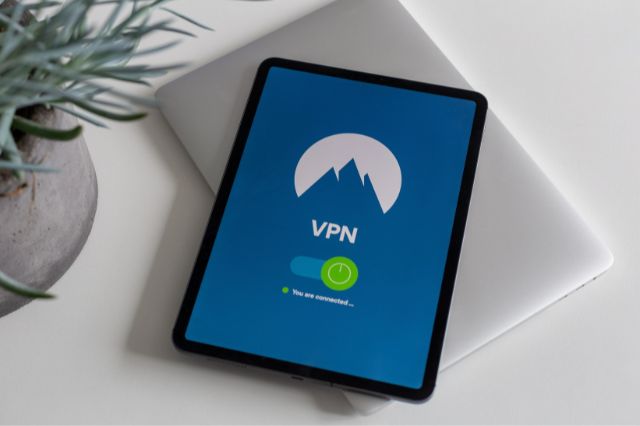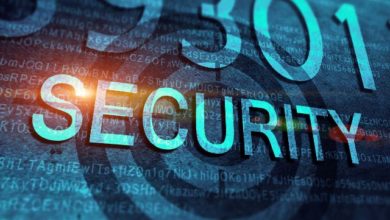How to Use a VPN for Online Security?

In the present era of digitalization, safeguarding online security has become increasingly vital. As a large amount of our personal data is stored online, it’s imperative to adopt measures to ensure its protection. One effective way to achieve this is by using a Virtual Private Network (VPN).
A VPN establishes a safe and encrypted connection between your device and the internet, which helps to shield your sensitive information from interception by unauthorized parties.
This article will delve into the advantages of using a VPN for online security and offer a detailed guide on how to utilize it efficiently.
Understanding VPN
A Virtual Private Network (VPN) is a type of technology that establishes a secure and encrypted link between your device and the internet. It functions by directing your internet traffic through an encrypted tunnel, making it challenging for unauthorized parties to intercept or gain access to your information.
Additionally, a VPN provides anonymity by concealing your online identity through the masking of your IP address.
Benefits of Using a VPN for Online Security
1. Data Encryption
VPNs use robust encryption protocols to protect your data while it is in transit. Without encryption, your sensitive information, such as passwords, credit card details, and private messages, is vulnerable to interception by malicious actors.
A VPN adds an extra layer of protection by encrypting your data, ensuring it remains confidential. Ensure that the VPN service you choose offers strong encryption standards like AES-256.
2. Public Wi-Fi Security
Public Wi-Fi networks in coffee shops, hotels, and airports are convenient but often lack adequate security. Hackers can easily intercept unsecured connections and gain access to your sensitive data.
By connecting to a VPN while using public Wi-Fi, you create a secure tunnel that encrypts your data, preventing hackers from intercepting it. This protection is particularly crucial when accessing online banking, email, or other sensitive personal accounts.
3. Anonymity and Privacy
ISPs (Internet Service Providers) and websites can track your online activities, collect data, and even sell it to third parties for targeted advertising. With a VPN, your browsing activities remain confidential.
A VPN masks your IP address, making it hard for anyone to monitor your online activities. This provides a higher level of privacy and anonymity, keeping your online footprint hidden from prying eyes.
4. Geo-restriction Bypassing
Some websites and streaming platforms impose region-based restrictions on content, limiting access to certain shows, movies, or websites based on your geographical location. A VPN allows you to choose a server location in a desired country, making it appear as if you are browsing from there.
This enables you to bypass geo-restrictions and gain access to content that may otherwise be unreachable in your region. Whether you’re traveling or want to access region-specific content, a VPN grants you greater online freedom.
How to Use a VPN for Online Security?
1. Choose a Reliable VPN Service
Selecting a reputable VPN provider is crucial for ensuring security and privacy. Look for VPNs that offer strong encryption, a strict no-log policy, a wide server network, and user-friendly applications across multiple devices.
Additionally, consider factors such as connection speed, customer support, and price when making your decision.
2. Install the VPN Application
Once you have registered for a VPN service, you need to download and install the application on your device(s). Most VPN providers offer applications that support different operating systems such as Windows, macOS, Android, and iOS. The installation process is usually simple and involves following the on-screen instructions.
3. Configure Preferences
Once installed, open the VPN application and customize your preferences to enhance your online security. These preferences may include options to automatically connect to the VPN when you start your device or connect to unsecured networks.
Additionally, some VPN apps allow you to choose specific encryption protocols for added security.
4. Choose a VPN Server
VPN applications typically provide a list of server locations to choose from. Select a server location based on your needs, such as bypassing geo-restrictions or optimizing connection speed. If security is your primary concern, choose a server located in a privacy-friendly jurisdiction that has robust data protection laws.
5. Connect to the VPN
After selecting a server, establish a connection to the chosen VPN server by clicking on the connect button. The VPN application will encrypt your internet traffic and create a secure tunnel for your online activities.
Once connected, your device’s IP address will be masked, and your internet traffic will be routed through the VPN server.
6. Verify Connection and Security
After connecting to the VPN server, you can verify the encrypted connection by checking if your IP address has changed and if traffic is being routed through the VPN. Various online tools and websites can help confirm the VPN connection. Additionally, some VPN applications feature built-in features to check your connection status and provide information about the level of encryption being utilized.
7. Use the Internet Securely
Once the VPN connection is established, you can now browse the internet securely, knowing that your data is encrypted and your online activities are protected. Be cautious while visiting websites, downloading files, or sharing sensitive information.
Remember that while a VPN helps enhance security, it does not provide complete invulnerability. Practicing digital hygiene and using strong, unique passwords for your accounts is still vital.
Conclusion
Utilizing a VPN is an effective way to enhance online security and privacy. By encrypting your data, providing anonymity, and allowing bypassing of geo-restrictions, a VPN provides a robust solution to safeguard personal information in an increasingly connected world.
By following the steps outlined in this guide and choosing a reputable VPN service provider, users can empower themselves with foundational online security measures and enjoy a safer online experience.
Remember to configure preferences, diligently connect to VPN servers, and practice good digital habits to fully leverage the potential of using a VPN for online security.




